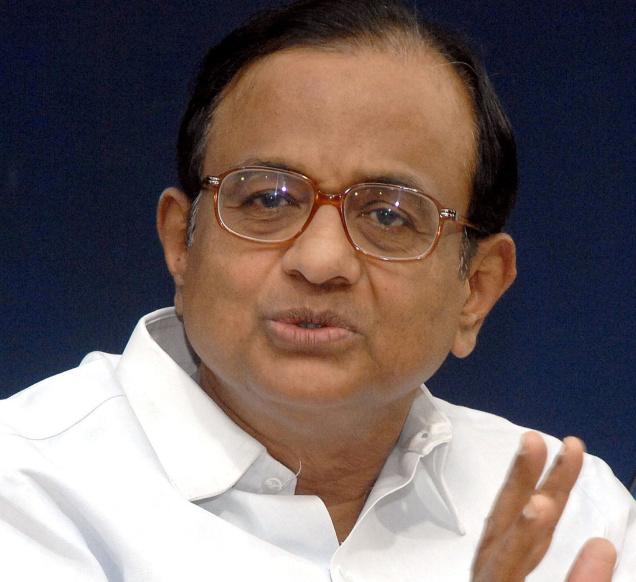
Vivek Kaul
What do you do when you cannot solve a problem? You try and postpone it.
The finance minister P Chidambaram is trying to use the principle of postponement to ensure that the government meets the fiscal deficit target of Rs 5,42,499 crore or 4.8% of the gross domestic product, set in the annual budget. Fiscal deficit is the difference between what a government earns and what it spends.
The Controller General of Accounts puts out fiscal deficit data every month. During the first five months of the year, the fiscal deficit of the government was at 74.6% of the annual target. Interestingly, the fiscal deficit of the government for the first six months of the year came in at 76% of the annual target.
Now what does it mean? The simple explanation here is that the government has started to control its expenditure, and that in turn has helped it control the burgeoning fiscal deficit and ensure that it rose at a very slow rate, month on month, between August and September.
That is the straightforward explanation of the fiscal deficit moving from 74.6% of the annual target at the end of five months to 76% of the annual target at the end of six months. The fiscal deficit of the government at the end of five months was Rs 4,04,651 crore. This rose marginally to Rs 4,12,088 crore at the end of six months.
So how is the government controlling expenditure? By simply not recognising it.
As The Financial Express points out in an article published on November 11, 2013 “At least Rs 43,000 crore in food subsidy costs may be carried forward to the coming years’ budgets, as the Centre is determined to keep this year’s accounts within budgeted limits.”
Food subsidies form a major part of the government expenditure. In fact, the amount of Rs 41,560 crore released by the finance ministry during the first six months of the financial year (i.e. between April 1, 2013 and September 30, 2013) has largely been used to pay the arrears that have accumulated from last year, reports The Financial Express.
The government declares a minimum support price(MSP) for rice and wheat. At this price, the Food Corporation of India and other state agencies buy grain from the farmers. This grain is then supplied at a subsidised price significantly lower than the MSP, through ration shops. “So while the MSPs of paddy and wheat are fixed at Rs 1,310 per quintal and Rs 1,350 per quintal, respectively, this season, people below the poverty line are sold rice (after milling the paddy) at Rs 565 and the winter grain at Rs 415 per quintal,” The Financial Express article referred to earlier points out. Hence, the rice and wheat are sold at a loss.
Other than this loss, FCI also needs to bear the cost of procurement, storage and transportation of grains. The government needs to refund the FCI for these costs. And these costs together constitute the food subsidy.
Along similar lines Reuters in an article published on November 11, 2013, suggests that nearly Rs 30,000-40,000 crore of oil subsidies could be moved to next year. As the article pointed out “Preliminary calculations show that the finance ministry could defer subsidy payments to oil firms of Rs 30,000-40000 crore ($6.39 billion) until the next fiscal year, a senior finance ministry source with knowledge of the numbers said. There was a similar roll-over into this year’s budget from 2012/13.”
Oil subsidies are on account of the fact that oil marketing companies(OMCs)(Indian Oil, Bharat Petroleum and Hindustan Petroleum) need to be compensated for under-recoveries. So what are under-recoveries? The Rangarajan Committee report of 2006 stated that the OMCs are “are currently sourcing their products from the refineries on import parity basis which then becomes their cost price. The difference between the cost price and the realised price represents the under-recoveries of the OMCs.”
The price that OMCs charge dealers who sell diesel is referred to as the realised price or the depot price. If this realised price that is fixed by the government is lower than the import price, then there is an under-recovery.
Hence, FCI in case of food subsidies and OMCs in case of oil subsidies, need to be compensated by the government. But the government does not compensate them immediately and takes its own sweet time to do so. Reuters columnist Andy Mukherjee explained this best in a column he wrote on October 25, 2013. “India’s government recognizes revenue and costs not when it actually incurs them, but when it writes or receives cheques. By simply delaying payments, New Delhi can therefore give the impression it is sticking to its promise of keeping this year’s budget deficit within 4.8 percent of GDP,” wrote Mukherjee.
So FCI can run up the costs of providing cheap food to people in 2013-2014. But it will be compensated for the same only in 2014-2015. Along similar lines OMCs will be compensated in 2014-2015 for expenditure that they incur in 2013-2014. Meanwhile, they need to borrow from the market to keep running their operations.
This ensures that even though the government incurs expenditure during a particular year through its various arms, it recognises the expenditure only next year. If a company were to do so, it would be held for accounting fraud. But that is not the case with the government.
To conclude, the principle of postponement is at work big time in case of the government of India because that is the only way it can meet its fiscal deficit target. Of course, that would mean a big headache for the next finance minister and the next government. But then who is bothered about that? Clearly not Chidambaram.
The article originally appeared on www.firstpost.com on November 12, 2013
(Vivek Kaul is a writer. He tweets @kaul_vivek)